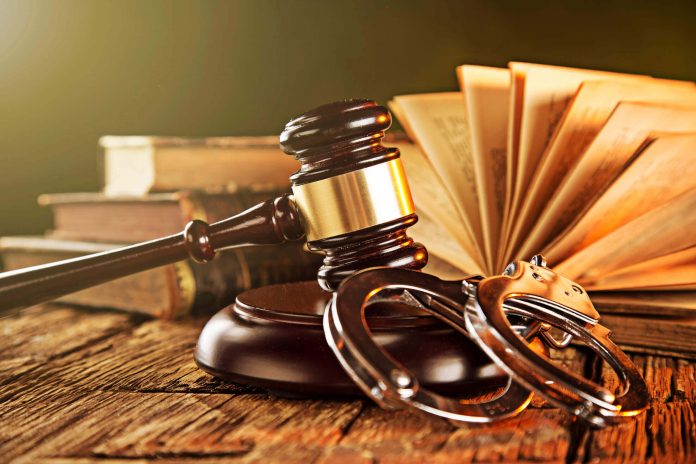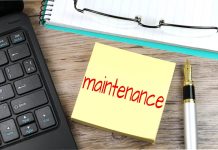This article is written by Aditya Anand from Symbiosis Law School, NOIDA. In this article, the author has covered the legal issue on advocates’ Right to Practice that contradicts Section 17 of the Maintenance and Welfare of Parents and Welfare of Parents and Senior Citizens Act, 2007.
Table of Contents
Introduction
On 30 March 2021, the two-Judge Bench of the Kerala High Court comprising of Chief Justice S Manikumar and Justice Shaji P Chaly passed the landmark judgment allowing a writ petition filed in 2011 challenging the validity of Section 17 of the Maintenance and Welfare of Parents and Senior Citizens Act, 2007. In this case, Section 17 of the Act was declared as ultra vires of the Constitution and void, repugnant to Section 30 of the Advocates Act, 1961 which is the controversial issue that has been discussed in this article. The provisions of one Act should not violate the rights given by other Acts. In other words, the controversy here is all about the contradictions of Section 17 with the right of Advocates to practice under the Advocates Act,1961.
Objectives of the Act
- The Maintenance and Welfare of Parents and Senior Citizens Act, 2007 has been formulated to provide financial security, protection, and welfare to senior citizens.
- This Act directs children to provide maintenance to their parents, and the government to provide old age homes to senior citizens as mentioned in the Act as well as in the highlights of the Maintenance and Welfare of Parents and Senior Citizens (Amendment) Bill, 2019.
- This Act ensures the welfare of the senior citizens by protecting the life and property of such persons. The estimated population of citizens above 60 years of age by the year 2026 is 173.18 million. This data indicates the projected population of senior citizens as of 1st March 2001-2026, as per the report of the technical group on “Population Projections” constituted by the National Commission on Population.
- As per Section 9(2) of the Act, Maintenance Tribunals may direct children to pay a maximum of Rs 10,000 per month as maintenance amount to their parents. The recent Amendment of 2019 also removes this upper limit on the maintenance fee.
Salient features of the Act
- The basic feature of the Act is to provide maintenance to the parents or grandparents based on their needs.
- The successful implementation of the Act requires setting up tribunals that will be set up to settle the maintenance claims of the parents in a time-bound manner.
- The key point of this Act is that the claimant can directly file the suit or raise the issue without any active participation of a lawyer during the proceedings.
- As per Section 17, of the Act, the lawyers are barred from entering the proceedings of a tribunal.
- A tribunal may direct children or relatives to make monthly allowance at an interim basis to the parents of any such senior citizens.
- When there is pendency of the proceedings regarding monthly allowance for the maintenance under the Section, the tribunal can grant an order to children or relatives to pay such senior citizens from time to time.
- The maximum time duration between filing cases and disposing of has been mentioned under Section 5(4). The Section describes that the matter of monthly allowance including the maintenance and expenses of proceedings shall be disposed of within 90 days from the date of serving the notice of the application to such persons. However, the maximum period of trial can also be extended to a period of thirty days if there is any exceptional circumstance with the reasons to be recorded and to be stated in writing.
- The Central Government takes periodic reviews with the state governments to monitor the progress and implementation of this Act.
- The Act also provides the penal provisions to reduce the abandonment by the children of their parents or grandparents. If children are charged with the offense then they may be imprisoned for a term of 3 months or with a fine of Rs 5,000 or both as the case may be.
What is the controversy
The Act has explicitly mentioned the objectives and the person who can initiate the proceedings. The major flaw in the Act that became a controversial matter is that the Act barred the lawyers from participating before tribunals at any stage. The Act has also explicitly mentioned under Section 17 that no legal practitioner or an advocate can represent the parties in the proceedings before any tribunal.
This has been a controversial legal matter as the Act has been found violative of Section 30 of the Advocate Act,1961 that lays down the advocates’ Right to Practice. The provisions of this Act states that every advocate whose name is entered in the state roll shall be entitled to the Right to Practice throughout the territories to which this Act extends. It includes all the courts of the country including the tribunals and any other authorized person before whom the advocate can practice. There can be any such authority or person before whom such advocate is by or under any law for the time being entitled to practice.
The lawmakers of the Maintenance and Welfare of Senior Citizens and Parents Act, 2007 have ensured these provisions to restrain the aggrieved party to create any exhaustive ground of arguments. The immediate disposal of cases requires short elaboration and discussion of the issues. As per the government, the objective is to keep the matter cost-effective or economical. So, Section 17 of the Maintenance and Welfare of Senior Citizens and Parents Act, 2007 contradicts Section 30 of the Advocates Act, 1961. The Act also bars the restriction that parties cannot choose whether to opt for a legal practitioner or not. The Act can also provide the discretion to choose the lawyer as per their will. The Advocates Right to Practice also gets infringed taking Section 17 of the Act into consideration.
This has been the matter since the formulation of the Act. After the recent Amendment of Maintenance and Welfare of Parents and Senior Citizens( Amendment) Bill, 2019, the bars on advocates to practice have also not been clarified thoroughly as the legislators failed to address the matter and simply stated that the restriction would reduce the expenses of the parties that are involved in it. Thus, it can be concluded that justifiable reasons for creating such provisions have not been provided by the lawmakers.
According to me, the statements in the Bill regarding the Advocate’s Act, 1961 are not exhaustive and justifiable as to create a better method to save the expenses of parties as it can also be left at the discretion of the parties whether to opt for lawyers or not. There can be various situations for instance the parties can have their choice to solely represent the case or do as the case may be.
Court’s view
Adv KG Suresh v. The Union of India on March 30, 2021
This case is the landmark judgment related to Section 17 of the Maintenance and Welfare of Parents and Senior Citizens Act, 2007. The Kerala High Court has declared the restriction on lawyers for representing parties in matters of Maintenance and Welfare of Parents and Senior Citizens Act, 2007 before maintenance tribunals as unconstitutional. The two-judge bench of the Kerala High Court comprising Chief Justice S Manikumar and Justice Shaji P Chaly allowed the writ petition. The Court had also stated that Section 17 of the Maintenance and Welfare of Parents and Senior Citizen Act, 2007 is declared as ultra-vires of the Constitution and void, repugnant to Section 30 of the Advocates Act, 1961.
Section 30 of the Advocates Act mentions the rights of advocates to practice throughout territories to which the Act extends in all the courts from the district level courts to the Apex Court of the country. Other than courts, there can also be any tribunal or person legally authorized to take evidence and before any such authority or person before whom such advocates are under any law for the time being in force entitled to practice.
The writ petition was filed by a practicing advocate of the Pathanamthitta Court by raising writ petitions for the two issues. The first issue was to declare Section 17 of the Maintenance and Welfare of Parents and Senior Citizens Act, 2007 which is beyond the constitutional validity and should be declared null and void as it also creates a limitation to Section 30, of the Advocates Act, 1961. The Section empowers the lawyers who are registered under the Bar Council of India to practice all over the areas up to the recognition of this Act. The next issue that was raised was to issue a writ of mandamus (command) or any such appropriate orders.
The Petitioners challenged the constitutional validity of Section 17 of the Maintenance and Welfare of Parents and Senior Citizens Act, 2007. The Petitioner also supported their argument by stating Section 30 of the Advocates Act, 1961 which describes the legal right of legal practitioners. The Petitioner’s contention was that the Right to Practice mentioned under Section 30 is against Section 17 of the Maintenance and Welfare of Parents and Senior Citizens Act,2007.
The Petitioner also contended to Section 8(2) and Section 6(4) of the Maintenance and Welfare of Parents and Senior Citizens Act, 2007 stating that the tribunal has also the power to take evidence and conduct inquiry so an advocate or any legal practitioner should have the right to appear before the court. They also have the Right to Legal Aid that has been guaranteed under Article 21 of the Constitution and legal assistance shouldn’t be confined to only advice. Article 21 is the fundamental right that is protected by the Supreme Court, the guardian of the Indian Constitution. It states no person shall be deprived of his life or personal liberty except according to procedure established by law.
Undoubtedly, the Court also observed the Defendant’s side well that has been stated in Para 52 in which the contention is that the participation of Advocates may threaten the objective of this Act as it would delay the disposal of cases before the Maintenance tribunal. After a thorough discussion and analysis, the judgment was concluded in favor of Plaintiff and it was held that Section 17 doesn’t comply with the law.
Thus, from the above judgments, it can be concluded that the victory of the advocates would benefit at large and they can represent the parties as well as take part in the discussion.
Tarun Saxena v. Union of India
In this case, the Delhi High Court has pronounced the judgment providing major relief to the lawyers on April 16, 2021. The Delhi High Court’s verdict is appreciable, commendable, and cogent. The verdict was delivered by Justice Pratibha M Singh. The Court stated that Section 17 of the Maintenance and Welfare of Parents and Senior Citizens Act, 2007, bars legal professionals or lawyers from entering the proceedings of the tribunal and contrary to law.
The Section explicitly mentions that legal practitioners shouldn’t be directly involved in the proceedings of the petition filed under this Act. The Delhi High Court has referred to the statement from the judgment Adv KG Suresh vs The Union of India that Section 17 is ultra vires (beyond powers) of Section 30 of the Advocates Act, 1961 and ordered accordingly that advocates would have the right before the tribunal to represent the parties.
As per the facts of the case, the petition was filed against the order that was passed on 26th March 2021 by the ADM of the Kookardama Court under the Maintenance and Welfare of Parents and Senior Citizen Act, 2007. The two issues raised by the Petitioner are as follows.
- The first issue that has been addressed is that advocates are not being permitted to appear before the tribunal. Regarding the first issue, the Court relied on the case of Adv. K.G. Suresh v. Union of India & Ors where it was concluded that Section 17 of the Act has been declared ultra vires of Section 30 of the Advocates Act,1961.
- The second issue is that the evidence is not being permitted to be laid before the tribunal.
According to the Court, the tribunal has allowed the parties to file their applications in respect of the evidence they wish to record. Thus, it was concluded this is in accordance with the law and provisions of the Maintenance and Welfare of Parents and Senior Citizens Act, 2007.
The legal controversy is about the first issue about the Right to Practice for which the Court took the reference of the case Adv KG Suresh vs The Union of India. The Right to Practice has also been mentioned in Article 19 of the Constitution of India. Article 19 is the fundamental right and it gives the Right to Practice any profession so it enables the advocates to practice any profession and also enables them to appear before any courts and tribunal. The order was passed enabling the advocates to appear in the tribunal.
Conclusion
The Right to Practice granted to an advocate is an important right that cannot be undermined. There can be a possible conflict among the Sections of the Acts but the ultimate objective of the Acts is that it should work in accordance with the Constitution of India. The objectives and Salient features of the Act also express the purpose behind the formulation of this Act. The Act would also provide the speedy disposal of cases. Thus, the controversial issue was resolved by the Court. The Court stated the Right to Practice as a valid right and restriction imposed on the lawyers is void as they can practice in all the courts as well as they are entitled to represent the parties.
References
- https://thedailyguardian.com/advocates-entitled-to-appear-in-maintenance-tribunals-bar-on-legal-representation-unconstitutional-kerala-high-court/
- https://prsindia.org/billtrack/the-maintenance-and-welfare-of-parents-and-senior-citizens-amendment-bill-2019
- http://socialjustice.nic.in/UserView/PrintUserView?mid=52569
- http://www.legalservicesindia.com/law/article/2116/39/Advocates-Have-Right-To-Practice-Before-Maintenance-Tribunals-Delhi-HC-Declares-S-17-Of-Senior-Citizens-Act-Ultra-Vires-To-S-30-Advocate-Act
- https://www.thehindu.com/news/national/now-lawyers-can-practise-in-all-courts/article2107607.ece
Students of Lawsikho courses regularly produce writing assignments and work on practical exercises as a part of their coursework and develop themselves in real-life practical skills.
LawSikho has created a telegram group for exchanging legal knowledge, referrals, and various opportunities. You can click on this link and join:https://t.me/joinchat/J_0YrBa4IBSHdpuTfQO_sA
Follow us on Instagram and subscribe to our YouTube channel for more amazing legal content.
 Serato DJ Crack 2025Serato DJ PRO Crack
Serato DJ Crack 2025Serato DJ PRO Crack











 Allow notifications
Allow notifications


